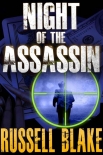The Gangster, Clive Cussler [ebook smartphone txt] 📗

- Author: Clive Cussler
Book online «The Gangster, Clive Cussler [ebook smartphone txt] 📗». Author Clive Cussler
“Squads in the field. Frankly, sir, if you won’t give me a Black Hand Squad, I would rather you appoint me Chief Investigator.”
“I’m Chief Investigator,” said Van Dorn. “And I intend to remain Chief Investigator until I can appoint a valuable man who is sufficiently seasoned to take over . . . Have you made any headway with that paper?”
“I have an agent on Park Row, canvassing the printers, stationers, and ink shops.”
4
Before he opened the morning mail, David LaCava filled his show window with stacks of ten-dollar bills and heaps of gold coins. Banco LaCava was a neighborhood bank that offered many services. His depositors trusted him to telegraph money to relatives elsewhere in America and even cable it back to Sicily; they trusted him to keep their wills and passports in his safe; and when they bought insurance and steamship tickets from LaCava, they knew the insurance would be paid up and the tickets weren’t forged. As the old country saying went, LaCava was “as honest as the Lottery.” But the plain, simple immigrants who had landed on Elizabeth Street direct from the countryside, or fled city slums that made Elizabeth Street tenements palaces by comparison, looked for proof in his show window that when they needed to withdraw cash Banco LaCava could cover them.
He opened his mail with trembling fingers. As he feared, more demands from the Black Hand. Under their “letterhead,” if silhouettes of a black hand and a skull pierced by a dagger could be dignified as such, his tormentors had scrawled another threat in crude English:
Patients we lost. Sick and tired of writing. We ask man of honor for ten thousand. He spurs us.
A bitter smile twisted his face. “Patients” for “patience.” “Spur” for “spurn.” Illiterate brigands. Like his depositors, LaCava, too, had come from nowhere and nothing. The way to success was to embrace all things American—first and foremost, learning to speak, read, and write the English language.
We say be man of honor. We say, meet at bridge. He come not. Here we give last chance. Ten thousand dollar. We know you have in bank. Thursday night. We tell where later.
At the bottom of the page they had added a cartoon drawing of a stick of dynamite with a burning fuse. Like in the funny papers.
LaCava opened a drawer in his desk, which faced the street door of his storefront bank, and laid his hand on the cool steel of a .38 revolver. A lot of good it would do against dynamite. He shoved the gun and the letter in his coat and walked uptown to 13th Street, where he found Giuseppe Vella sitting at his kitchen table in his shirtsleeves. The contractor looked miserable, stuck in the house when a man should be at his business. LaCava showed him the letter, and Vella exploded to life in a burst of indignation.
“I’ve been thinking,” Vella said, “how to deal with these scum.” He yanked on his coat, adjusted his necktie, and slicked back his hair. “Come on, we’ll go see Branco.”
“I thought of going to him,” said LaCava. “Branco happened to be making a deposit when I got the first letter. I almost asked his advice, but I hardly know him.”
“Let me do the talking. I know him well. I dug his cellars.”
Business was booming at Branco’s Wholesale Grocery. Endless lines of enameled wagons crowded the curb, loading, clattering off, returning empty to be filled again by an army of clerks dashing from the store with boxes of macaroni, cans of olive oil, salt, peas, beans, and anchovies, wine, fish stock, and soap. Like Vella, like LaCava and other prominente, Antonio Branco had made a success in America—a bigger success than any of them, having won the Bureau of Water Supply contracts to feed ten thousand Italians working on the Catskill Aqueduct.
“Hello, my friends,” Branco called from the doorway. Like Vella, Branco made the effort to stick to English, even among countrymen. Although Branco’s accent was still strong, far more noticeable than Vella’s, and his American phrases often tangled words in odd order.
“When you are free,” Vella said, “could you come across the street for a coffee?”
“You will drink coffee in my own back room,” said Branco. “I am free right now.” He beckoned a clerk. “Take over. The front wagon is for special customer. Only the best . . . Come.” He led Vella and LaCava through the store to his office, which smelled of coffee. A kettle simmered on a gas ring. The long table where his staff took their meals was covered with a red and white checked oilcloth. A map of America’s railroads hung on the wall.
“Sit while I make.”
Vella smiled in spite of his troubles. “I thought rich men’s servants make their coffee.”
Branco looked up from the grinder with a conspiratorial grin. “I make better coffee than my servants. Besides, I am not rich.”
LaCava’s eyebrows rose in disbelief, and Vella greeted such modesty with the knowing smile of a fellow business man. “It is said that you turn your hand to many things.”
“I don’t count in one basket.”
Vella watched him putter about the makeshift kitchen, warming cups with boiling water, grinding the beans fine as dust. Antonio Branco had been the biggest Italian grocery wholesaler in New York City even before he landed the aqueduct job. Now he had thousands of captive customers shopping in labor camp company stores. He was also a padrone who recruited the laborers and stone masons directly from Italy.
In theory, city law banned padrones from the job, as did the unions, which fought the padrone system tooth and nail. In practice, the contractors and subcontractors of the Contractors’ Protective Association needed sewer, subway, street paving, and tunnel laborers precisely where and when events demanded. Branco worked both sides, hiring surrogate padrones to supply newly arrived immigrants for some sections of the aqueduct, while he ingratiated himself with the Rockmen and Excavators’ Union by operating





Comments (0)